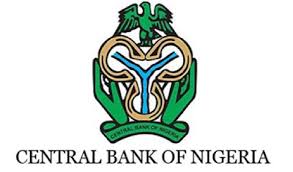The Central Bank of Nigeria (CBN) has issued a stern directive to banks, payment service providers, and fintech operators across the country, mandating them to reinforce their sanctions compliance frameworks or risk facing stiff regulatory actions.
The directive, contained in a circular dated April 17, 2025, was signed by Amonia Opusunju on behalf of the Director of the CBN’s Compliance Department. The apex bank reminded all financial institutions of their statutory obligations to comply with both local and international sanctions regimes, as part of measures aimed at curbing money laundering and terrorism financing.
The CBN emphasised that all financial institutions operating in Nigeria are expected to strictly adhere to the provisions of the United Nations Consolidated Sanctions List, the Nigerian Sanctions List in accordance with the Terrorism (Prevention and Prohibition) Act, 2022, and the apex bank’s own guidelines on targeted financial sanctions related to terrorism and its financing.
According to the circular, financial institutions are required to implement a “robust and dynamic sanctions compliance framework” that allows for the prompt identification and management of updates across applicable sanctions lists. In addition, institutions must ensure their platforms are not used for processing transactions involving individuals or entities listed under any sanctions regime.
Furthermore, the CBN directed that real-time screening of customers, transactions, and beneficial ownership data must be an integral part of compliance structures. It also stressed the need for timely filing of reports with the Nigerian Financial Intelligence Unit (NFIU) and urged institutions to alert the apex bank when necessary.
“Financial institutions are required to prevent the use of their systems and platforms for transactions involving designated individuals or entities, and to conduct real-time screening of customers, transactions, and beneficial owners,” the circular read in part. “They must file appropriate reports with the NFIU and notify the CBN where necessary.”
The apex bank cautioned that any lapses in compliance would attract enforcement measures and regulatory sanctions. It further noted that institutions must regularly review the effectiveness of their sanctions compliance programmes and ensure they are aligned with prevailing legal and regulatory expectations.
This directive comes as Nigeria continues to strengthen its regulatory posture in response to growing global scrutiny around financial crimes. The country has been working to improve its compliance standards in line with the requirements of international watchdogs such as the Financial Action Task Force (FATF).
In a move that underscores the increasing accountability expected from all players in the financial ecosystem, the CBN’s circular also draws attention to the obligations of non-traditional financial operators such as fintechs, urging them to embed solid compliance mechanisms within their platforms as they continue to innovate and expand.
The apex bank concluded by reminding all financial service providers that compliance with sanctions-related directives is mandatory, not optional. Institutions were urged to take immediate steps to align their operations with the relevant provisions of the law and CBN guidelines in order to avoid regulatory penalties.
With this latest directive, the financial sector is expected to witness heightened enforcement actions, compelling operators to invest more in compliance infrastructure, particularly in the areas of sanctions screening, real-time transaction monitoring, and mandatory reporting systems.







